 [i+DAT[A]: Instituting Data Exposition]
[i+DAT[A]: Instituting Data Exposition]
[Tuesday 9 to Saturday 13 April 2002]
[i-DAT, University of Plymouth, UK]
i+DAT[A]: Instituting Data Exposition PDF
Title: i+DAT[A]: Instituting Data Exposition
Dates: Tuesday 9 to Saturday 13 April 2002
Location: i-DAT, University of Plymouth, UK
Email: @i-dat.org
Subject: i+DAT[A] exposes the ways in which data is instituted in a variety of contexts, de-fragmenting issues related to the production, control and distribution of digital media across the cultural industries.
The i+DAT[A] Exposition seeks to de-fragment practices and digital activities across the public and private sectors that define the cultural industries within the South West region and beyond. Partitioned into a series of seminars, practical workshops, presentations and screenings, the exposition provides a rich environment for focused critical discussion on the future of digital media.
i+DAT[A]’s week of events leads up to the Instituting Data Conference on Friday 12 and Saturday 13 April. This is an international conference, which is linked to the Hybrid Discourse series of events, which seeks to address the currency of the term “cultural industry” in the light of current changes in cultural production under the new economic conditions of networked societies. Both the Hybrid series and the Exposition facilitate a radical critique across diverse fields of cultural practice addressing the ways in which data is instituted (institutionally organised).
The production of digital media content has radically transformed the computing, communications and media industries. The impact on the users of these technologies has been far more acute. Educators and trainers, artists and architects, publishers and broadcasters, curators and archivists, are all faced with new digital opportunities to transform their professional practice. All too rapidly these opportunities manifest themselves as critical problems – that engage legal, technical, managerial, cultural and editorial issues. Even when standards and codes of practice appear to provide a sense of stability, digital data is by its nature unstable and technological innovation threatens to disorientate and fragment any coherent strategies. Through a rigorous engagement with these issues the i+DAT[A] Exposition will help optimise your digital activities.
i+DAT[A] maps a common digital territory that underpins a range of institutions and provides a critical and supportive environment where professionals from across the cultural industries can reflect on the impact of digital data. i-DAT[A] tests old models and provides new perspectives from which to view your practices and the ways in which data is instituted.
i+DAT[A] is organised by i-DAT, the Institute of Digital Art and Technology at the University of Plymouth, a new organisation engaged in the production and distribution of digital media with a broad cultural remit across the fields of art, industry and education. The Institute of Digital Art and Technology aims to be an internationally recognised Institute dedicated to exploring innovative applications of digital technology and associated emergent practices through intensive collaborations with industry, the arts and science. Through a dynamic integration of science, technology and art, i-DAT creates a platform for the exploration and dissemination of contemporary cultural production using digital technologies. Operating on a trans-disciplinary basis, i-DAT provides rich resources for research, development, ‘publishing’, education and training, forming a laboratory for artists and creative professionals to explore this new territory.
Central to the mission of the Institute will be the economic, educational and creative benefits to the South West region through effective collaboration between partner academic institutions and the private and public sectors. From an economic perspective, the Institute acts as a catalyst for the creation of a vibrant digital media economy. Educationally and creatively, the Institute has, uniquely, a broad remit, which embraces both the digital arts and core technological aspects of the emerging digital media.
Partition Formats:
The Exposition is partitioned into several areas of interest, each of which is aimed at a particular target audience. However, the structure of the Exposition is designed to encourage participants to engage with sessions that offer a complimentary or parallel perspective on relevant digital issues. The intention is to encourage a de-fragmentation of digital knowledge and expertise.
All events have limited spaces and must be reserved in advance on a first come first serve basis. As a requirement of the European Social Fund all participants are asked to complete an ESF beneficiary form.
Conferences: Discreet conference sessions which engage with critical digital debates and knowledge exchange. These include: Digital Archiving / Public-Private Sector Digital Support / e-Learning / Digital Rights / Digital Publishing-Broadcasting / Generative Media / Curatorial Practices / Institutional Practices. Conference sessions take place daily usually in two simultaneous streams, in the Sherwell Centre on the University of Plymouth Campus.
Seminars: i+DAT[A] will host seminar and breakaway sessions from the main i+DAT[A] partitions. These include: Digital Networks for the Arts and Industry / Digital Curation, a regional perspective / Digital Rights and Intellectual Property in the Digital Age. These are being timetabled around the main conference sessions. Timings and locations will be announced on the i+DAT[A] website.
Workshops: Practical digital media workshops that cater for the conference sessions target audiences and initiate a regional collaborative digital production network. Workshops take place in the Babbage Building New Media Studios. A workshop fee of £20 per person will be charged.
Software available for exploration within the workshops include: Interactive Authoring: [Macromedia Flash, Director, Roxio Toast]: Image: [Freehand, Adobe Photoshop]: Web: [Dreamweaver, Java, CGI, Perl, BBEdit]. Audio: [SoundEdit, Emagic Logic Audio, Sonic Foundry Sound Forge, Acid]. Video: [Sorenson Broadcaster, Adobe Premiere, After Effects, Apple QuickTime Pro, Apple QuickTime VR Authoring Studio, Terran Cleaner]. 3D: [Kinetix 3D Studio Max, Cosmo Worlds VRML Builder].
Screenings: Evening sessions will be used for the screening and performance of digital works. A performance will follow the Generative Media conference (Thursday evening) and screenings follow the Curatorial Practices conference (Friday evening).
Exhibition: The foyer of the Sherwell Hall Conference Centre will host a number of digital events and commercial stands. Exhibitors include Submerge and MLA#2. Companies and organisations wishing to use the venue to tie into specific conference sessions should contact the Exposition organisers contact@i-dat.org or through the Exposition booking form.
Casts: The conference and evening sessions will be webcast and incorporate a number of online access points. For further details see the i+DAT[A] website:
www.i-dat.org/projects/idata
The i+DAT[A] Exposition programme may be subject to change without further notice. For up to date details on i+DAT[A] speakers, timetable and booking forms please see:
www.i-dat.org/projects/idata or Tel: (01752) 232560 or Email: contact@i-dat.org.
i+DAT[A] Exposition:
Tuesday: 09/04/02
Stream1: Digital Archive: 1.30-5.00 PM: Sherwell Centre.
This conference will present a number of digital archiving case studies and will explore the critical issues related to digital archiving practices and institutions, maintenance and future proofing, media formats, legal issues. Digital Archiving is revolutionising the activities of libraries and museums, offering new potential for greater access but also creating a range of concerns for coherent standards. This session draws on the expertise of organisations currently involved in establishing standards and practices that will define the future of our digital past.
Digital Archive Speakers: ARKive Project [Hewlett Packard] / Chris Clarke [National Sound Archive] / MODEL – [i-DAT+REALL+inIVA/V&A Museum- Artefact Project] / Patrick Russell [BFI].
Stream 2: Digital Interface: Public-Private Sector Futures. 1.30-5.00 PM: Sherwell Centre.
The Interface conference presents an opportunity for organisations developing parallel policies and practices in digital media across the South West region to present, discuss and reflect on policy, provision, infrastructure, and strategies for a shared digital future. Presenters are drawn from across the public and private sector support organisations for education, industry, arts and media. This is a unique occasion to map out opportunities [for funding, regional and national policies and potential cross disciplinary collaborations] across the emerging digital landscape.
Digital Interface Speakers include representatives from: South West Arts / Smart South West / Higher Education Regional Development Association – South West / South West Screen / Chair: Julian Beer [SRRU, UoP].
Workshop: Babbage New Media Studios.
Remote Access Workshop #1: Babbage New Media Studios. Running from Tuesday to Thursday the Digital Media Production Workshops initiate the Remote Access Network. These workshops will generate a network of practitioners wishing to share their particular skills and work collaboratively on new media projects. The intention is to develop a programme which will generate and strengthen a network that will become an organisation /network /collective in its own right.
Wednesday: 10/04/02
Stream1: Digital Knowledge: e-learning. 1.30-5.00 PM: Sherwell Centre.
Digital Knowledge explores current and future developments in digital learning environments from educational, technical and experimental perspectives. Speakers are drawn from a diverse range of backgrounds, each presenting a specific educational, technological or audience perspective on the fragmented field of digital learning. In an era where there is too much data to be processed into information, where information is seldom transformed into knowledge, and where knowledge is too often a substitute for wisdom, the e-Learning session examines the aspirations of educators and trainers exploring digital content and delivery systems. e-Learning Speakers include: Dr. Victoria de Rijke, Principal Lecturer and Rebbeca Sinker, Senior Research Fellow [DARE to Quack: Middlesex University + inIVA] / Neil Mcfadden [Orange Group Ltd] / Sybille Mansfield-Schiffmann [e-Learning Consultant] / Mike Phillips [i-DAT] / [Additional speakers tbc].
Stream2: Digital Rights: Intellectual Property and Media Law. 1.30-5.00 PM. Sherwell Centre.
This session will present legal perspectives on the impact of digital media and digital distribution systems on individual and corporate ownership of artistic and literary copyright, licensing, data protection and other media rights. The session will include case studies that explore the impact of media law on the digital domain, and conversely, the impact innovations in digital media are making on the future evolution of media law. In an area that is fraught with problems pertinent to small to medium size companies, as well the activities of individuals, this session will help map out a territory littered with digital/ legal mine fields.
Digital Rights speakers include: Andy Finney [ATSF] / Gary McKay [Bevan Ashcroft] / [BPI- British Phonographic Society] / Hugo de Rijke [i-DAT] / [Additional speakers tbc].
Workshops: Babbage New Media Studios.
#1: Remote Access Workshop #1+2.
#2: Digital Archiving Workshop: 10AM Start:
The Digital Archiving workshop provides a hands-on exploration of digital archiving processes. A variety of technologies will be explored for the capturing and formatting of digital assets from a range of source material. The workshop: Babbage New Media Studios.
Thursday: 11/04/02
Stream 1: Digital Publishing/Broadcasting: 10.00 AM – 5.00PM: Sherwell Centre.
One of the most important factors in the collapse of ‘multimedia publishing’ in the 90’s was the dominant mind set that defined the look and feel of products with a dogged determination to adhere to traditional media forms and production practices. Shovelling ‘book’ content onto the computer screen resulted in a surfeit of graphical interfaces with pseudo-metaphors for front ends. Unable to make the dimensional leap through the 3rd dimension (apart from superficial 3D menu buttons), towards the 4th (the domain of film and video), and finally the 5th dimension of interaction, the New Media industry all but collapsed under the gravitational pressures of a 2 dimensional mentality. Fortunately On-Line technologies now offer a second chance for a digital redemption. This conference explores issues that surround the successful and appropriate design, production, management and delivery of ‘digital media’. The focus is on the potential for the emergence of a truly ‘transmedia’ dissemination form that redefines traditional models of ‘publishing’ and ‘broadcasting’.
Speakers include: Macromedia / BBC (tbc) / OKSO / Two Four Productions / Northcliffe Group (tbc) / The Liquid Press / Andy Williamson [Peakviewing Transatlantic] / Chair: Mic Cady [New Media Consultant].
Stream 2: Generative Media: 2.00 – 5.00PM: Sherwell Centre.
Generative media is a term given to work usually (although not exclusively) automated by the use of a machine or computer, or by using instructions to define the rules by which the artwork is executed. After the initial parameters have been set by an artist-programmer the process of production is unsupervised, self-organising and ‘live’. Work literally ‘grows’ autonomously, according to the innate properties of the chosen technology or the particular circumstances in which the instructions are carried out.
Alex Mclean [state51] / Joanna Walsh [zooleika] / Adrian Ward [signwave] will demonstrate creative possibilities for generative media, with a focus on issues related to creative autonomy and the emerging figure of the artist-programmer. Tom Trevor [Spacex Gallery] and Tina Sotiriadi [i-DAT] will talk about two art projects that engage these ideas – ‘Generator’ and ‘Vivaria’. Jon Pettigrew [Maxus] will present his generative film prototype that builds upon his earlier work as co-founder of KOAN. Geoff Cox [i-DAT] will chair and introduce the event. This seminar is programmed in association with eu-gene mail-list (http://www.generative.net) where
discussion may continue. This event also acts as pre-publicity for the touring exhibition *Generator*, Spacex gallery, 1 May – 22 June 2002, supported by The Arts Council of England (Collaborations Unit). *Vivaria* is at a research and development stage, and is also funded by the Arts Council of England (New Media Fund).
Workshops: Babbage New Media Studios.
1: Remote Access Workshop #2
2: e-Learning Workshop: In collaboration with The Orange Group Ltd.
The e-Learning Workshop explores the creation and development of digital learning environments. Issues of planning, design and re-usability are explored through a hands-on practical workshop that responds to the needs of participants.
Who is it for?: Organisations wishing to integrate a learning or training activity into their work environment and educators wishing to transfer their teaching and training skills to OnLine or OffLine (CDROM/HD) environments.
Generative Performance: 6.00PM> Sherwell Centre: The Generative Media event will be followed by performances of generative music by Slub and Limbomedia.
Friday: 12/04/02.
Curatorial Practices (in association with MUTE): 2.00-6.00PM: Sherwell Centre.
Based on the Frankfurt School’s concept of the culture industry, this session will investigate the diverse models of curatorial practice that facilitate production, distribution and dissemination of new media works. Set within a wider context of the current cultural economy this session examines interrelationships between artistic programming, varied sources of funding, audience development and participation, local and non-local community development, social infrastructure and cultural policy.
Speakers: Olia Lialina [Professor of Merz Academie, Stuttgart] / Violetta Kutlubasis-Krajewska & Piotr Krajewski [WRO Centre for Media Art, Poland] / Sarah Cook [Canada/UK, University of Sunderland] / Chair: Joasia Krysa [i-DAT] & Lina Dzuverovic-Russell [MUTE].
Workshops: Babbage New Media Studios.
1: Digital Publishing/ Broadcasting: 10.00AM Start: In collaboration with the Liquid Press and limbomedia.
Following on from the Digital Publishing / Broadcasting session this workshop explores some of the practical issues of transmedia content generation and dissemination. This workshop is designed to give participants the skills necessary to create interactive elements for use on CD-ROM or the web and for output to stable media forms such as journals and books. Server side environments are also explored for streaming media and integrated online environments. The workshop has a flexible format and will respond to issues and skill needs raised by participants.
Who is it for?: Organisations and individual new media practitioners interested in exploring digital dissemination activities that might not conform to standard website and CDROM design environments.
2: Generative Media Workshop: 10.00AM Start: In collaboration with limbomedia.
Following on from the Generative Media sessions the Generative Media Workshop allows participants to explore the development of generative systems using a range of media and software for OnLine or OffLine (CDROM/HD) environments. Previous experience of authoring environments would be helpful, although a range of models will be available for modification and mutilation. The workshop will explore audio and visual media formats.
Who is it for?: Organisations and individual new media practitioners interested in exploring generative systems for OnLine or OffLine (CDROM/HD) environments.
Screening: 6.00PM>: Sherwell Centre.
Screening of digital archive material from the WRO Centre for Media Art, Poland.
DataSpace zero-g: Yuri’s Night Celebration / Discussion: 6.00PM-late: Plymouth Arts Centre.
On the anniversary of Yuri Gagarin’s first human flight into space, i-DAT and Plymouth Arts Centre hosts a Yuri’s Night Celebration. Looking to the future of gravityless art and other cosmic investigations, participants and space-artists will explore possibilities through chatshow style discussion, installations, and celebratory fun.
As part of a global Space party (http://www.yurisnight.net), the DataSpace discussion will explore conjunctions of transcultural and progressive practices, creating strategies for artists to infiltrate space industry technologies such as microgravity simulations / Chair: Lorelei Lisowsky [i-DAT].
Saturday: 13/04/02.
Institutional Practices: 10.00AM-6.00PM: Sherwell Centre.
#1.Models: 10.00AM:
This session will examine different models of media art institutions that promote and disseminate digital technologies and their modus operandi: their structure, management, funding, programming, production and dissemination, audience development and future strategies for development. Issues to be addressed will include the importance of models for institutions; the demands of an infrastructure; how new media institutions can be made flexible and not condemned to a fixed building; how peripheral institutions can act as centres of activity.
Speakers: Luca Dal Pozzolo [Fondazione Fitzcarraldo, Italy] / Clive Gillman [FACT, UK] / Anne Nigten [V2, The Netherlands] / Chair: Bronac Ferran [Arts Council of England].
#2. Art-Commerce: 2.00PM:
This session will focus on the relationship of digital media institutions to industry in local and non-local contexts. For instance, to what extent is artistic research a development process for commercial interests, how can a sense of artistic integrity be maintained whilst remaining open to creative possibilities and how useful is the distinction between public and private spheres? The contradictory benefits of industrial links will be investigated through a discourse which questions how these tensions might be embraced as part of the creative dynamic of cultural production using digital technology.
Speakers: Jordan Crandall [Artist and media theorist, USA] / Marina Grzinic Mauhler [Institute of Philosophy at the ZRC SAZU, Slovenia] / Simon Ford [Mute Magazine, UK] / Chair: Violetta Kutlubasis-Krajewska & Piotr Krajewski [WRO Centre for Media Art, Poland].
Contact:
The Institute of Digital Art and Technology
School of Computing
University of Plymouth
Drake Circus
Plymouth
PL48AA
t: ++44-01752-232541
f: ++44-01752-232560
e: contact@i-dat.org
Location:
Workshops: Babbage New Media Studios on the University of Plymouth Campus.
Conference: Sherwell Centre on the University of Plymouth Campus.
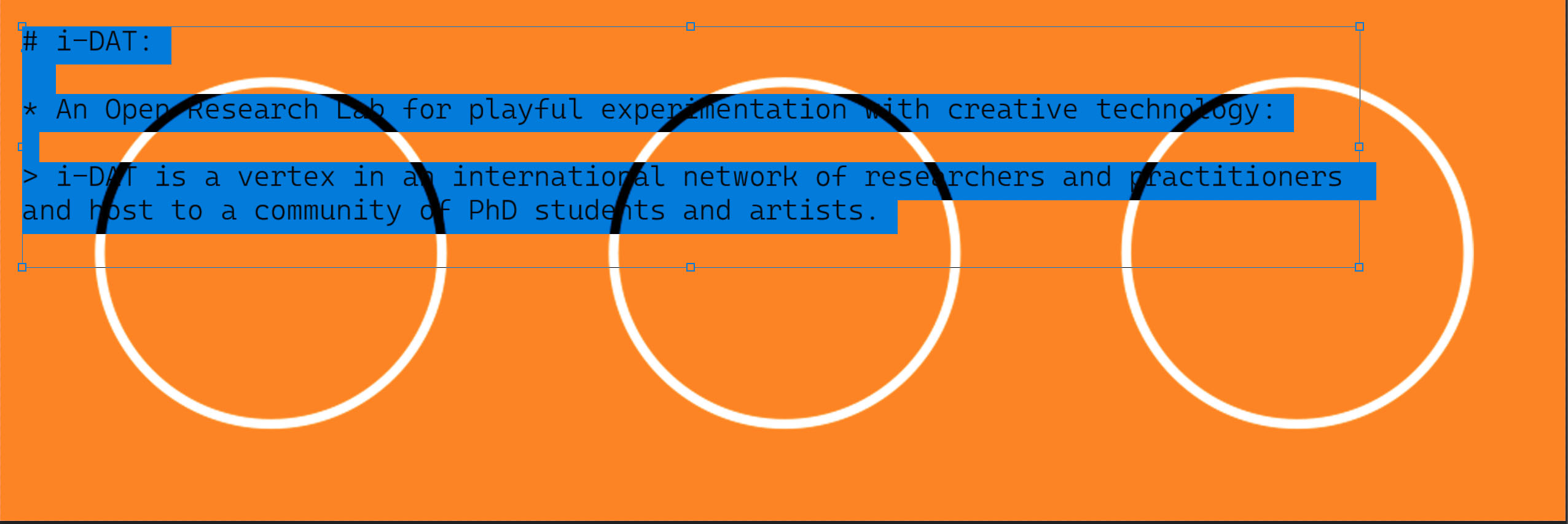
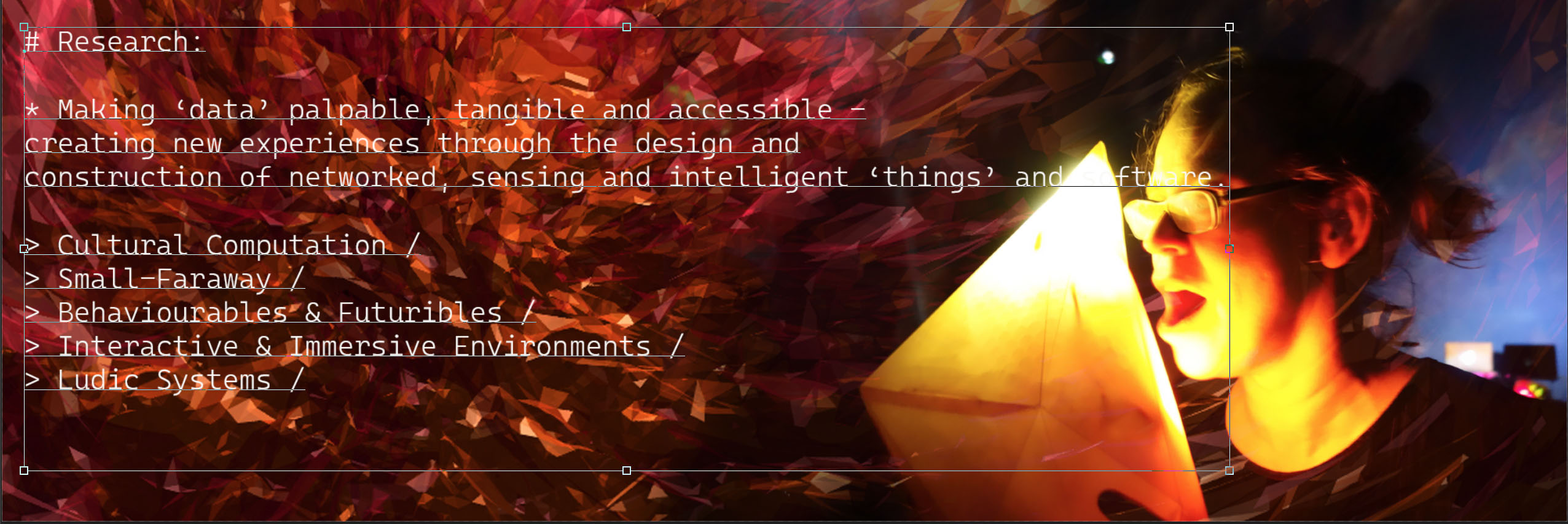
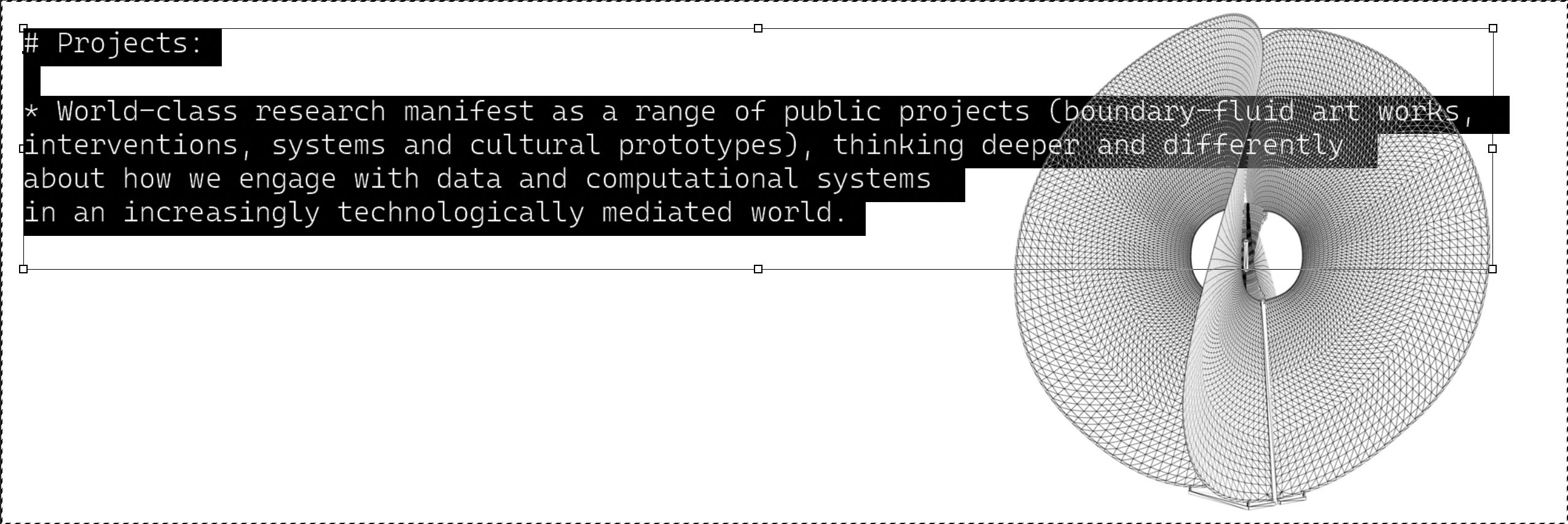
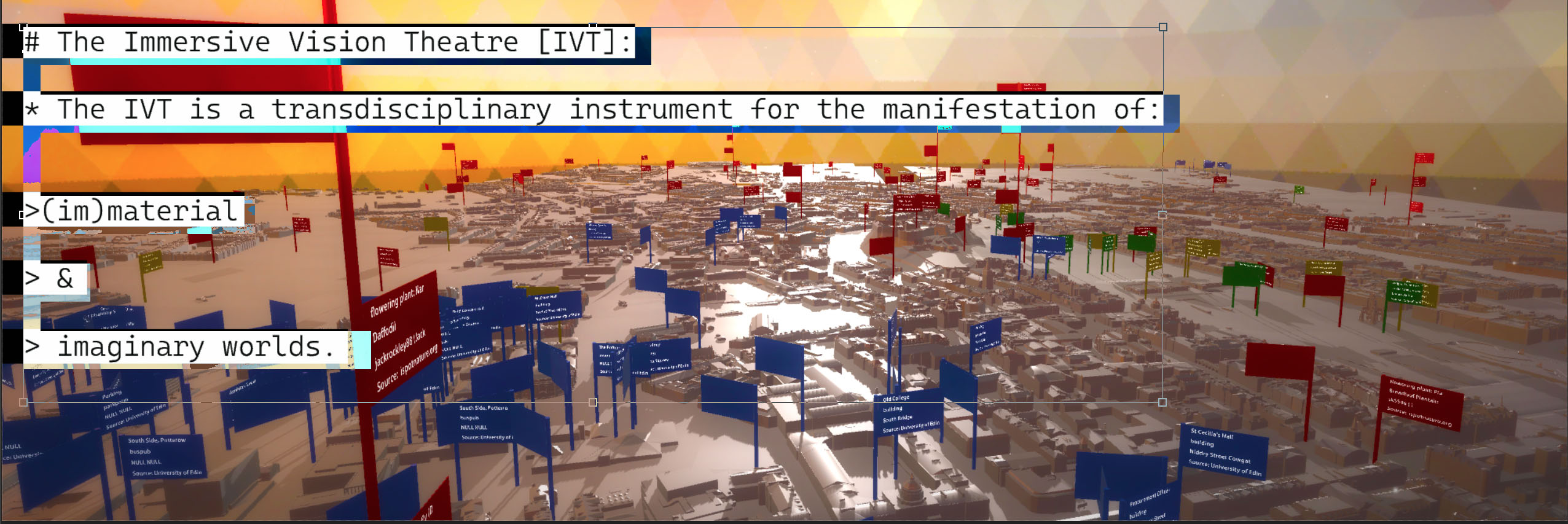
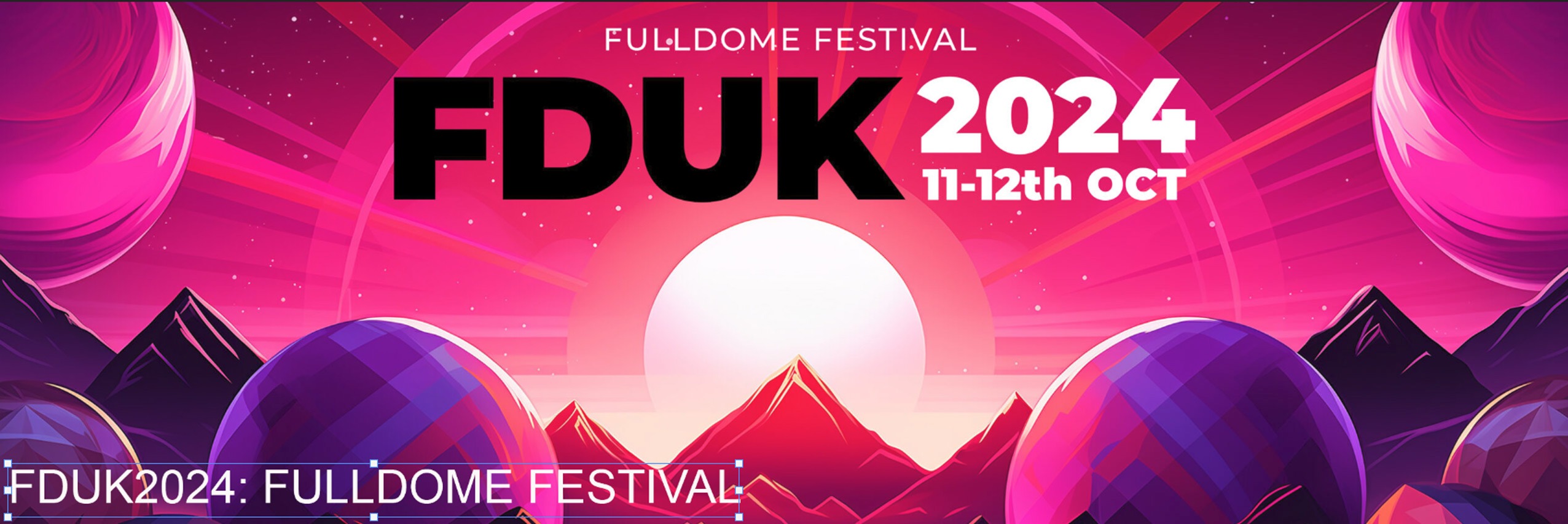
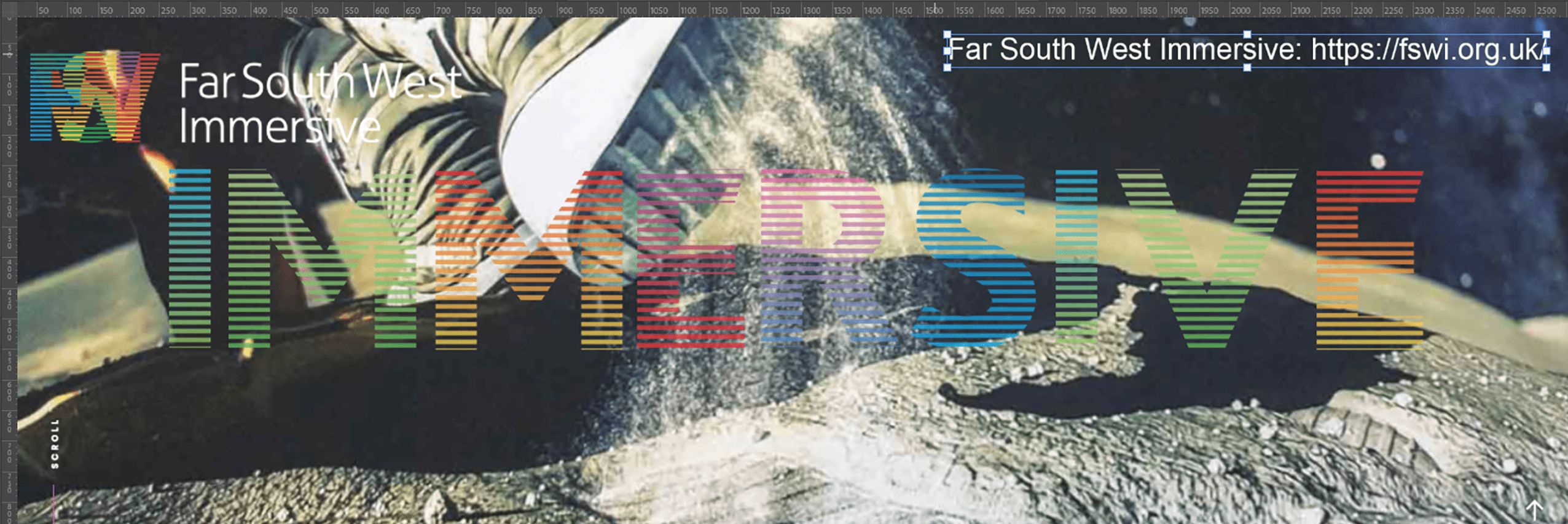

You must be logged in to post a comment.